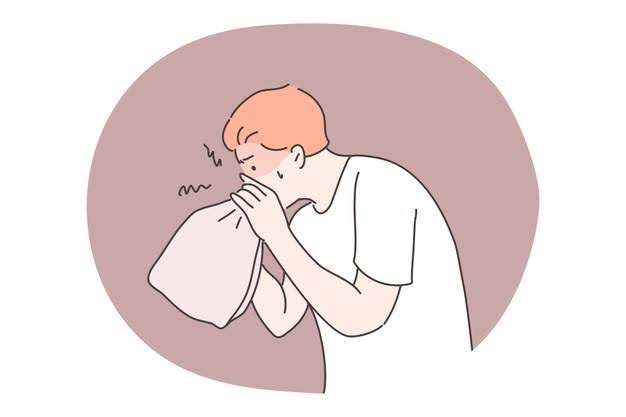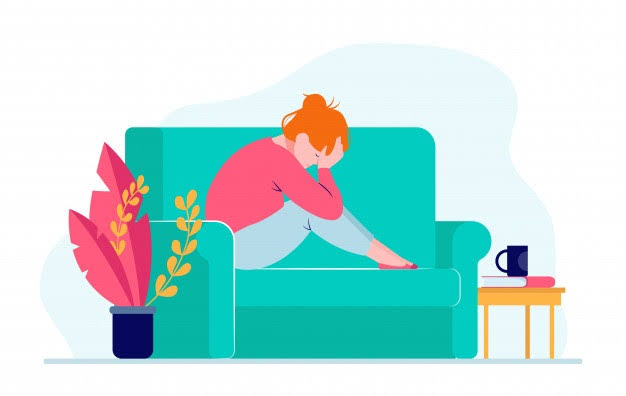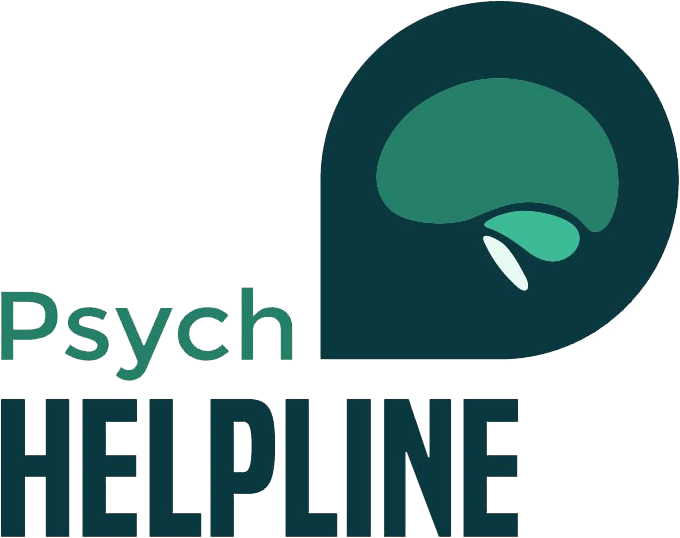Table of Contents
Having an adjustment disorder or Illness anxiety disorder is never a sign of weakness. Despite what society might lead you into believing some people adapt to changes in a more comfortable manner than others. For instance; To examine the likelihood of an adjustment disorder an entire family of 4 can be exposed to similar stressors. One of them might succumb to anxiety stemming from an adjustment disorder meanwhile the other 3 make it out just fine. According to a recent study conducted on anxiety disorders;
“Most people experience an adjustment disorder at one point in their lives.”
Both adjustment disorder and Illness anxiety disorder are long-term conditions. Furthermore, their severity may increase with time if not treated with relevant medication and psychological counseling.
Hypochochondriasis Or Illness Anxiety Disorder
Hypochondriasis or illness anxiety disorder is an anomaly in which a person becomes excessively alarmed and anxious regarding their health. IAD comprises of worrisome thoughts about having a serious mental or physical illness. More commonly, Illness anxiety disorder is also known as “severe health anxiety” or “health anxiety”.
According to ICD-10 hypochondriasis is a somatoform disorder. Meanwhile, in ICD-11, this anomaly shares space with the category “obsessive-compulsive or related disorders”.

It doesn’t matter how minor the symptoms are a hypochondriac individual is more likely to assume the worse. Illness anxiety disorder also includes an irrational fear of something that’s totally minor. IAD sufferers struggle with an inaccurate perception of their body and health.
Illness Anxiety Disorder: Symptoms
To clinically diagnose the presence of Illness anxiety disorder the symptoms listed below should be recurrent for at least 6 months. Furthermore, it’s essential to conduct tests pointing out that no other underlying ailment is responsible for these symptoms. Individuals struggling with Illness anxiety disorder usually have the following recurrent symptoms;
- Body Reexamination: It’s one thing to take a look at your body sometimes for self-diagnosis but an obsession involving this habit is a precursor for IAD. IAD sufferers repeatedly check out their skin for lesions or rashes and throat for a cancerous regrowth. It’s a common habit to be anxious and to fear the worse.

- Preconceived Notions and Doubtful Advances: Another huge red flag is repeated visitations to a medical facility. The immediate increase of self-doubt might force people with an Illness anxiety disorder to make random visits to their doctor. They’ll also demand diagnosis on the same issues again and again. Furthermore, IAD sufferers often lose complete hope of recovering once they come across new somatic sensations. On the other side of the spectrum, some sufferers completely abandon hope and stray wary of visiting a doctor when in need. That’s because they’re so fearful of facing the consequences they remain anxious becomes of preconceived notions regarding their health.
- Refusal To Accept Professional Help: When faced with professional recommendations, IAD sufferers are never satisfied. They’ll refuse to accept any diagnosis given by a doctor and remain fearful of something that’s entirely minor. These patients might even refuse to accept medication fearing its effect on their health.

- Distress: If you struggle with Illness anxiety disorder you’re more likely to spend your day remaining curled in a ball and worrying about your health. Hypochondriatic individuals are often anti-social and unable to function properly under stressful situations.
IAD: Causes
The likelihood of developing Illness anxiety disorder often multiplies if you suffer from the following underlying issues;
- Extreme stress
- Trauma
- Previous medical history
- Sexual or physical abuse in the past
- Genetic factors
- Childhood neglect
- Mental health issues
IAD: Treatments And Strategies

- Building A Safe Space: Enlisting the help of a healthcare professional isn’t enough. If you won’t open up to a professional worker and won’t trust them enough you’ll continue suffering in silence. Before heading over to the next stage or any other coping mechanisms your therapist or physician should first focus on building a secure space for you. Only if you feel welcomed in an environment you can proceed with therapy. The relationship between you and your therapist should be highly supportive and you should receive timely reassurances.
- Prescription Drugs: Evidence from previous researches prove that anti-depressants, anti-psychotics, and selective serotonin reuptake inhibitors can reduce symptoms of IAD.

- Cognitive Behavioral Therapy: According to recent findings around 2/3rd of Illness anxiety disorder patients respond positively to CBT. This is perhaps the most essential and crucial part of the treatment. For anxiety-related anomalies like Illnesses anxiety disorder, CBT has been proven to have positive results in the past. This statement can further be proven by taking a look at the randomized controlled trial studies done on the effectiveness of Cognitive behavioral therapy in the past.
Complications Involving Illness Anxiety Disorder
Although seeking a perfect diagnosis and undergoing any treatment that’s required to treat IAD is essential. There are still a few drawbacks associated with the whole process. Some of these complications can be severe and may require treatments of their own. In the meantime let’s have a look at some of these complications.
- Panic Caused By Invasive Testing: Sometimes rigorous testing and procedure can take a toll on an individual’s psyche. This Illness occurs in those individuals that are a little too scared of being ill. Hence, when this much rigorous testing is involved the patient becomes a bit more agitated and panicky. Furthermore, prolonged procedures to look for the cause of symptoms can even worsen the symptoms.
- Pain relievers or sedatives: Your therapist might prescribe some drugs so you can feel a bit calmer and collected while you’re under IAD’s radar. At the same time, you must keep the drugs you take under check otherwise you might become dependent on them in the long run.
Adjustment disorder with anxiety

Any kind of distress that is caused by your inability to adapt to a stressful situation or circumstances often gets contributed to Adjustment disorder with anxiety.
Adjustment disorders usually arise from a person’s inability to adjust and this situation gives rise to drastic consequences including the rigorous amount of anxiety. Adjustment disorders are equally evident in children, adolescents, and adults.
Most studies suggest that around 1% of the world population annually struggles with an adjustment disorder at any period in their lifetime.
Adjustment Disorder With Anxiety: Leading Perpetrators

Usually, adjustment disorders arise from any kind of stressful experience. It can be any kind of sudden change in a regular schedule that a person might find hard to adjust to. Some of the leading causes are;
- Traumatic experiences from the past
- A natural disaster
- Sudden changes in personal life
- Breakup or sudden changes in marital status
- A pre-existing mental anomaly
- Stressful daily routine
- Changing career paths/Setting up your own business
- Inability to cope with the loss of a dear one
- Moving to a new locality
- Moving out for college
Common Symptoms Of Adjustment Disorders
Now that we know a fair share about adjustment disorders it’s about time we know how we can analyze its presence in an individual. Although every patient’s condition varies few textbook symptoms are quite common among all. As stated earlier anxiety is among the leading symptoms of an adjustment disorder. You’ll notice constant nervousness and jitteriness in a person who’s experiencing an adjustment disorder. Some other predominant symptoms of an adjustment disorder may include;
- Behavioral changes: The way an individual behaves, talks or acts will progressively alter in this particular situation. This particular change has to rise within 3 months of that particular stressor.

For instance; Children struggling with an adjustment disorder after their parent’s divorce show noticeable changes in their behavior. They might either behave too harshly with others or completely isolate themselves.
- Emotional Turmoil: This is perhaps among the most noticeable signs of an adjustment disorder. A person with an adjustment disorder is constantly emotionally sensitive, tearful, and in a low mood. Needless to say the inability to adjust can lead to a feeling of constant hopelessness.

- Inability To Function: Most of us are familiar and have dealt with common anxiety at least once in our life. Anxiety stemming from an adjustment disorder is much more severe. Due to an adjustment disorder, individuals will experience uncalculated distress that’s more intense than how a normal person would experience. The stressors leading up to this condition may also render you useless and unable to socialize.
Adjustment Disorder With Anxiety: Diagnosis
Contrary to any other kinds of psychosis or cognitive disorders there isn’t a specific test that can be performed to diagnose adjustment disorders. For the sake of immediate diagnosis, a mental health professional conducts an interview with the patient. During the course of that interview, you’ll be asked questions regarding your condition in order to assess your symptoms later on. Sometimes anxiety stems from any other underlying issue that the patient isn’t really familiar with. So, certain steps have to be taken in order to avoid a misdiagnosis.

Henceforth, post-interview you’ll have to get some routine tests done by a physician to ensure that your symptoms aren’t rising from any other underlying health issue. So, once your physician is sure about the lack of any physical/medical illnesses, you can then proceed with your dealings with a mental health professional.
Some Coping Strategies
Although taking part in a regular therapy program with a licensed professional is absolutely necessary you can still try some strategies. The strategies enlisted down below have been tried and tested and can be quite helpful in coping with anxiety stemming from an adjustment disorder:
Social Support

While you’re struggling to adopt new changes or to adjust to your new circumstances you can take the hand of a near and dear one for emotional support. For example; A new hostility might often find it hard to adapt to a new environment without their family members. Hence, regular calls on the weekends with your mom can help you take the edge off by providing you with some social and moral support for coping.
Self Care
Sulking in silence while lying in your bed has never helped anybody. Similarly, in order to temporarily or permanently cope with adjustment anxiety disorder, you must take great care of yourself. Self-care stretches to both mental and physical health and doing a thing that soothes both your body and conscience.

So, take a day off from work and book yourself an appointment for a spa. You can also try yoga or any other meditative means to practice self-care. Studies show that adopting a regular skincare regimen benefits the mental health of most women and men.
Talk Therapy
Talking things out is always better than suffering in silence. Holding discussions about your anxieties with a trusted individual gives you a chance to empty your heart. Consequently, Talk therapy is one of the most preferred treatments for an adjustment disorder due to the lack of risk and the procedure’s simplicity.

You can seek a therapist’s expertise and carry out discussions with them for emotional support and assistance. A practicing health professional can also analyze your issue in a better sense after listening to how you actually feel. Furthermore, holding such dialogues with your therapist will also provide you with a better chance of identifying new healthy coping and stress management strategies.
Bid Farewell To Unhealthy Coping Strategies
When being haunted by an adjustment disorder some people tend to overeat meanwhile others starve themselves. It’s one of the many unhealthy coping strategies that can temporarily be helpful but can be very regressive in the long run. You must realize that eating a lot is never going to fill up the big hole you have inside your heart.

Furthermore, an already present eating disorder can worsen due to the anxiety stemming from non-adjustment. So, cut down on any unhealthy coping mechanism you might’ve adapted in the past and find some positive ones.
Final Words
Negative public attitudes regarding these anxiety disorders might lead them to undermine them. So, it’s essential for the near and dear ones of a person suffering from these anomalies to understand how these symptoms are uncontrollable. Certain individuals are more easily adaptive to new situations and conditions as compared to others.

Meanwhile, those who struggle with sudden stressors might develop adjustment disorders. Anomalies like Adjustment anxiety disorder and Illness anxiety disorder are quite to diagnose. Furthermore, the situation becomes even sourer when we realize how there’s little to no public awareness regarding these anomalies.







